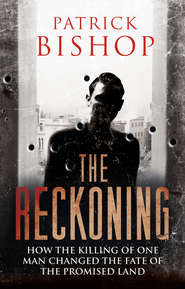По всем вопросам обращайтесь на: info@litportal.ru
(©) 2003-2024.
✖
The Man Who Was Saturday
Автор
Год написания книги
2019
Настройки чтения
Размер шрифта
Высота строк
Поля
Everything went swimmingly. After his session in the chair, he made way for Forbes. In the waiting room he told the guard he wanted to use the ‘Abort’ and was allowed to go unescorted to the latrine next door. Inside, he stowed his overcoat and retrieved some lengths of wood hidden in the ceiling by his helpers to be used as props in the next phase of the escape. He was soon joined by Forbes and, at a signal from a sergeant who was keeping watch outside, they stepped out, carrying the timber, ostensibly just two ordinary soldiers engaged in some errand. It was a short walk to the main gate of the compound, where the sentry’s attention was distracted by a corporal detailed to engage him in chat, and they passed through, mingling with the other POWs. At the door of a long hut housing warrant officers, Company Sergeant Major Thornborough of the Green Howards, immaculately turned out in spruce uniform and shining boots, grinned and shook their hands. They were left to rest for a bit until Thornborough returned, telling them there was a sight waiting that was not to be missed.
Picking up brushes and buckets so as to look like orderlies off on a fatigue, they followed him across the parade ground. Their escape had been discovered and the guards were angry and indignant. ‘Around us a crowd of British soldiers were laughing and shouting sallies at the Germans,’ he wrote. ‘Furious Germans stamped around … Down the steps of the Kommandantur [administrative headquarters] came agitated German officers gesticulating at the crestfallen sentries.’ They were joined by Field Police with dogs, who set off on the hunt in the opposite direction to where their quarry had gone to earth. The satisfaction was enormous. For the first time since the start of the war, Neave had put one over on the Germans. They spent the next three days hidden in the warrant officers’ hut. There was one scare when they had to hide under their cots while the Germans conducted a search. Neave wondered why they now suspected they might still be in the camp. Thornborough had warned him there were ‘one or two stool pigeons in the camp’. It was an early lesson that in the escape business it was wise to say the minimum and trust nobody, a policy that Neave’s critics would later say he followed closely in his political life.
At six o’clock on the morning of 19 April, after a cup of ersatz coffee, he and Forbes left the camp in the middle of a party of 150 men. They spent the day at a farm, where they were put to work in a barn stuffing mattress covers with straw. During the afternoon, on a signal that the coast was clear, they climbed into the loft and burrowed into the hay. Earlier, their helpers had smuggled in two extra men on the ration lorry. When the guards counted the work party out they matched the number who had marched in. It was the final touch in a superb performance by the NCOs and men, and Neave never forgot these ‘staunch and kindly people’. They ‘ran greater risks of punishment than we did, but not one spoke of the consequences … During my stay there had been no feeling of class or rank among us, only a mutual desire to defy the Germans.’
When night fell, they climbed down from the hayloft and went to the back door of the barn, where one of the helpers had loosened the wire holding it shut. They stepped out into the starlit night and, for the first time in two years, breathed the air as free men. For the next four days, dressed in their rough clothes, they trudged eastwards. Since devising his original plan, he and Forbes had hatched an alternative. There was a German aerodrome at Graudenz, north of Warsaw. The Poles in the camp had provided enough information about it to sketch a map. Forbes was a pilot. Perhaps they could steal an aeroplane and fly to neutral Sweden. It had been tried before by two RAF inmates of Thorn, who had got as far as climbing into an aircraft disguised as Luftwaffe aircrew before being rumbled because they could not understand the instructions from the control tower.30 (#litres_trial_promo)
The trek started well, matching the fantasies he had entertained while day-dreaming on his bunk. It was ‘like walking on air’. The language is telling, a further sign of the quasi-mystical importance Neave gave to the act of escaping. Relating the story of this first attempt, he stated that ‘no one who has not known the pain of imprisonment understands the meaning of Liberty.’31 (#litres_trial_promo) The capital letter is his. For Neave this was more than a simple act of duty or defiance. It had an almost religious significance. ‘The real escaper,’ he wrote, ‘is more than a man equipped with compass, maps, papers, disguise and a plan. He has an inner confidence, a serenity of spirit which make him a Pilgrim.’
After a few hours, the intoxication of freedom began to wear off. His sack of rations – tins of sardines and condensed milk and Red Cross parcel chocolate – cut into his shoulder, he was soaked in sweat and his feet swelled up painfully inside his army boots. In the morning it rained for hours. The countryside, carved through by the wide, muddy Vistula and dotted with small farms and orchards, was filled with ominous landmarks. They were following the river to Warsaw, taking the same route that the Germans had followed twenty months before, and the scars of the fighting were fresh. There were graveyards where Polish army helmets sat on white crosses, charred buildings and a smashed-up chapel with half a crucifix hanging over the doorway. Almost every farmhouse, no matter how small and mean, had new owners. The Poles had been turned out of their homes and German settlers put in. The pair were anxious to avoid all human encounters, but it was impossible not to feel the presence of the new masters.
Late that first morning, they were passed by a ‘a four-wheeled open carriage … driven by a German farmer in a flat cap, smoking a short cigar.’ He turned back to examine them and ‘his arrogant, fleshy face … bore an expression of savage contempt … and he fingered the stock of his long whip.’ Neave had been exposed to Germans frequently in his short life, as a schoolboy visitor, as a patient in the care of the military and as a captive. Until now, these experiences had suggested that, despite the repellent philosophy of the new order, the population had its fair share of decent human beings. On this journey, the Germans seemed wholly bad.
A little later, skirting a farm, they met a Polish man who recognised that they were fugitives. He wished them good luck in English but warned them to move on quickly as the German farmer was ‘very bad’. As they left they spotted him, ‘thick-set with an evil-tempered red face like the man who had driven past us. He too carried a long black whip and smoked a short cigar. We hurried away from him down a slippery path into the valley and heard him shouting to the Pole as if to a dog.’
The cruelty of the German occupation made an ineradicable impression on Neave and these memories bubbled to the surface when, four years later at the Nuremberg War Crimes Tribunal, he served the indictment on the Gauleiter overlord of conquered Poland, Hans Frank. At the same time, he was profoundly moved by the stoicism of the Poles and the sacrificial generosity they were prepared to offer to those they identified as friends. Again, it was something he never forgot. Long afterwards, in the face of Foreign Office opposition, he campaigned doggedly for a memorial to the thousands of Poles murdered by their Soviet oppressors in 1940.
At dusk on their second day of freedom, they were too exhausted to face another night in the open. They approached a whitewashed house and knocked. The door was opened by a young Polish woman, who summoned her father, a farmer who had somehow avoided eviction. He made them welcome and gave Neave a pair of corduroy trousers to replace the thin, torn ones he arrived in. Their only drawback was that they lacked fly buttons. There was shy giggling as the girls of the house removed the buttons from the old trousers and sewed them onto the new pair.
But after this interlude the smiling stopped. Neave sensed that ‘the room was heavy with their fear … I knew that the girls were watching for a glimpse of field-grey … at the window.’ There was a crash of heavy boots and a loud knock and he and Forbes scuttled to the kitchen. The visitor was a young Polish man who held an urgent conversation with the farmer. Even though Neave knew not a word of the language, there was no mistaking the tone of disquiet. He wrote later that ‘a great feeling of guilt ran through me as I witnessed their terror. Was it to destroy these simple lives that I escaped? Was it not better to endure the bitter frustrations of the Fort … all the degradation of being a prisoner? What did it matter whether I escaped or not if others were to die?’
This dilemma would confront every man who managed to get away from a German camp. As the war progressed, they were increasingly sited in Poland. Many – perhaps most – attempts required the assistance of Poles. Polish workers smuggled escape materials into camps and provided vital intelligence. Polish families gave food and shelter. All risked death by doing so and many paid the price. Most of the helpers were ‘ordinary’ people. Their fundamental motivation was decency and humanity. The question of whether these humble heroes and heroines should be put in mortal danger by the imperatives of the escapees was one that even the most thoughtful were never able to resolve. In the end, they could only comfort themselves with the thought that the assistance was freely given, in full knowledge of the deadly consequences.
Neave and Forbes were spared further agonising when the Polish farmer told them to sleep in the barn, asking them to be gone before dawn. The visitor had warned him that the local German settlers were looking out for them. The next afternoon they reached the large town of Wloclawek on the banks of the Vistula, about a hundred miles north-west of Warsaw. It was the day after Hitler’s birthday and swastikas and bunting fluttered over the streets. As they slunk along, Neave saw an old man with the Star of David ‘painted in yellow on his back’ walking slowly along the pavement. At the same time, a small detachment of SS men came marching by. They were singing, ‘their arrogant young faces scorning all around them’. Poles and Germans alike raised their hands obediently in the Nazi salute and Neave and Forbes quickly followed suit. The old man failed to see the Germans in time and ‘a fair young thug stepped from the ranks and struck him on the head. His hat spun in the wind and rolled across the road.’ The SS man pushed him off the pavement and he stumbled in the gutter and lay there moaning. No one dared to go to his aid.
Вы ознакомились с фрагментом книги.
Приобретайте полный текст книги у нашего партнера:
Приобретайте полный текст книги у нашего партнера:











